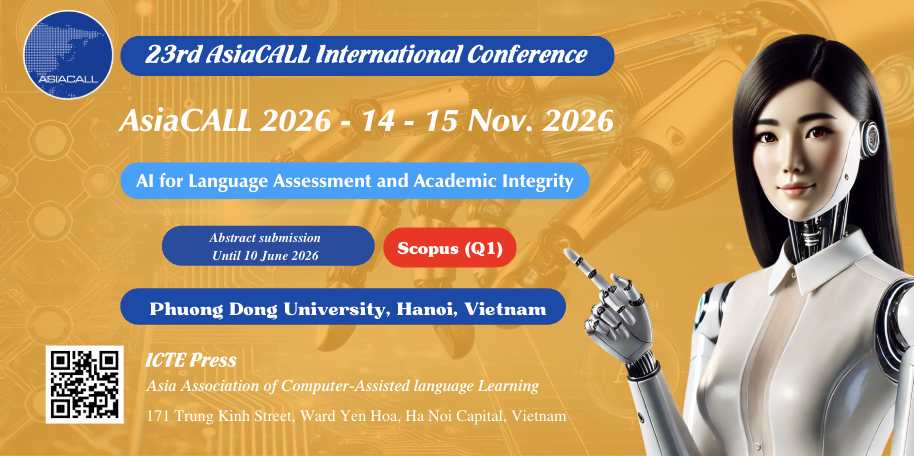Special Issue – Proceedings of the 11th AsiaCALL
Integration of a blended e-learning application for teaching English at a local university in Thailand
Nutprapha K. Dennis
nootprapa@hotmail.com
Ubon Ratchathani Rajabhat University, Thailand
Abstract
Educational Technology has affected English teaching and learning in Thai higher education. The multi-functionality of a Learning Management System (LMS) is integrated in traditional English language classrooms to create a blended e-Learning application to enhance students’ learning. To facilitate the importance of teacher preparation for educational technology used, it is important to study the facts influencing teachers in integrating LMS into their English classrooms and to explore the opinion from students who learn English by using LMS. Both qualitative and quantitative approaches were employed in this study. The results showed that 15 of 40 teachers from the English Department at Ubon Ratchathani Rajabhat University, Thailand used the LMS to supplement their English language teaching. Most of them used the uploading and sharing documents feature in order to assign students' homework and encouraged students to download learning materials outside the class to practice their English learning skills. It was also found that the LMS facilitated student-centered and anytime-anywhere learning. Moreover, it made course administration easier and helped reduce the cost and time of delivering instruction. In addition, 200 students were asked questions on using LMS, the results showed they had positive opinions toward learning English via an LMS. However, there were some disadvantages of using LMS in English language teaching such as the network and technical problems which were also discussed in the study.
Keywords: Learning Management System, LMS, e-Learning, blended e-Learning, educational technology, English language teaching and learning
